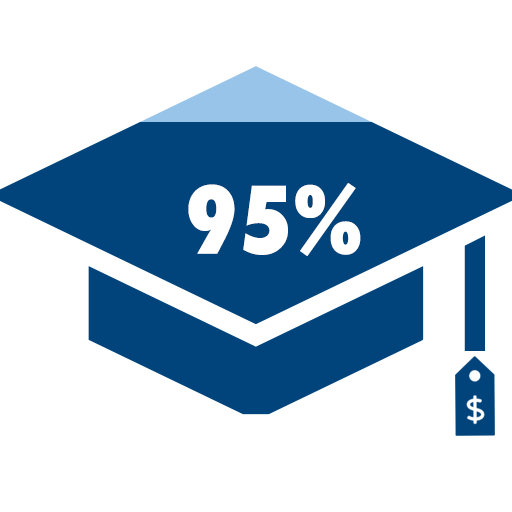What Is a PhD in Epidemiology?
The PhD in Epidemiology program at the Drexel University Dornsife School of Public Health is a scientifically rigorous doctorate program consisting of both formal classroom training and guided research with faculty mentors trained in a variety of areas of public health.
The Epidemiology PhD program prepares students to approach problems with critical analytic skills necessary and utilize the most appropriate research strategies to address meaningful epidemiologic problems.
Dornsife's current Phd in Epidemiology students are studying a wide variety of impactful research topics including pharmacoepidemiology, infectious diseases, autism, gentrification, transgender health, and cancer epidemiology.
Funded Slots for the 2026-2027 Academic Year
Acceptance to the PhD in Epidemiology program for the 2026-2027 academic year is contingent upon funding lines that are currently pending. We encourage part-time and self-pay applicants.
The PhD program in Epidemiology is accepting applications for the following funded slot (which includes tuition, health insurance, and a stipend of $32,000 per year):
- Jourdyn A. Lawrence, PhD, MSPH and Jaquelyn (Jackie) Jahn, PhD, MPH are seeking a doctoral student who is passionate about racial health equity, quantitative epidemiologic methods, and the potential for reparative and justice oriented social policies to narrow health inequities over the life course. The student will be co-mentored and have the opportunity to collaborate with an interdisciplinary team of researchers and community partners.
Why Pursue a PhD in Epidemiology at Drexel Dornsife?
Drexel Dornsife’s PhD in Epidemiology program offers a variety of unique benefits that prepare students for career advancement and professional skill development:
- Access to Renowned Faculty: Students engage with the Department of Epidemiology and Biostatistics faculty members, whose research areas include aging and lifecourse epidemiology, chronic and infectious disease epidemiology, complex systems approaches to population health, neighborhood influences on health disparities, psychiatric and neurodevelopmental conditions, and urban health.
- Financial Support: Full-time students with research or teaching fellowships receive full tuition, a 12-month stipend, and health insurance.
- Mentorship: Students are paired with outstanding faculty mentors with training and expertise in epidemiology and biostatistics.
- Teaching Opportunities: Doctoral students have opportunities for teaching in our master’s and undergraduate degree programs.
- Cohort Size: Small cohort size ensures favorable faculty to student ratio.
- Reputation: Dornsife ranks as the #1 graduate school of public health in Philadelphia and is accredited by the Council on Education for Public Health (CEPH).
- Excellent Career Outcomes: 100 percent job placement within one year of graduation.
PhD in Epidemiology Competencies & Learning Objectives
Upon graduation of the PhD in Epidemiology program, students will be prepared to:
- Demonstrate a basic understanding of human physiology and pathophysiology with special competence in areas needed for dissertation research
- Search and critically evaluate literature to synthesize information, identify major gaps in knowledge, and formulate statement of research problem and hypothesis
- Design studies based on application of principal study designs, strengths, and limitations; evaluate sample size; identify, assess, and minimize bias and confounding
- Analyze data using appropriate statistical approaches and standard statistical software
- Apply epidemiologic causal inference theory to the design, implementation, and interpretation of analyses
- Communicate results orally and in writing to scientists and non-scientists and place findings in appropriate public health and health policy context
To learn more about the Epidemiology PhD program, request more information to speak with an academic advisor today.
Request more information
Dornsife's Department of Epidemiology and Biostatistics seeks students who have demonstrated an ability to integrate public health competencies and skills into public health practice.
Admissions Requirements for the PhD in Epidemiology Program
Applicants to the PhD in Epidemiology program at Drexel University Dornsife School of Public Health must meet the following requirements:
- Master’s degree in epidemiology or a related field
- Potential for high level of performance in the PhD program and subsequent contributions to the field of epidemiology
All entering students are expected to have already completed introductory and intermediate level epidemiology and biostatistics courses as part of their Master’s program or must enroll in these courses, or their equivalents, as additional requirements.
Funded Slots for the 2026-2027 Academic Year
Acceptance to the PhD in Epidemiology program for the 2026-2027 academic year is contingent upon funding lines that are currently pending. We encourage part-time and self-pay applicants.
The PhD program in Epidemiology is accepting applications for the following funded slot (which includes tuition, health insurance, and a stipend of $32,000 per year):
- Jourdyn A. Lawrence, PhD, MSPH and Jaquelyn (Jackie) Jahn, PhD, MPH are seeking a doctoral student who is passionate about racial health equity, quantitative epidemiologic methods, and the potential for reparative and justice oriented social policies to narrow health inequities over the life course. The student will be co-mentored and have the opportunity to collaborate with an interdisciplinary team of researchers and community partners.
Application Requirements for the PhD in Epidemiology Program
To be considered for the PhD program in Epidemiology, applicants must meet the following requirements:
- Online application via SOPHAS
- Undergraduate and graduate transcripts (international transcripts must be evaluated by World Education Services)
- A written statement of career and educational goals, professional experience, and area of research interest
- Three letters of recommendation from faculty or professionals who can evaluate the applicant's promise as a graduate student
- Resume or CV
- Test of English as a Foreign Language (TOEFL or IELTS) for applicants whose first language is not English
A note on official GRE scores: GRE scores are not required for admissions decisions and are not reviewed if submitted. The Admissions Committee evaluates candidates based on a holistic and overall assessment of the required application materials.
An in-person or telephone/online interview is required of all finalists.
To learn more about application and admissions requirements for the PhD in Epidemiology program, please visit the page below.
Learn more about admissions and application requirements
Faculty and Research
The mission of the Department of Epidemiology and Biostatistics is to develop, teach and apply approaches to understanding the distribution and determinants of disease in populations in order to generate knowledge that can be used to improve public health.
More About the Epi/Bio Department
Meet Current Epidemiology PhD Students
Epidemiology PhD Program Curriculum
The PhD in Epidemiology curriculum prepares students to approach public health problems with the critical analytic skills necessary to generate meaningful epidemiologic questions and utilize the most appropriate research strategies to address them.
The program comprises both formal classroom training and guided research with faculty mentors trained in a variety of areas of public health.
Required Courses to Complete a PhD in Epidemiology
The PhD in Epidemiology program requires two academic years of structured coursework, consisting of required core courses in the Dornsife School of Public Health, as well as directed dissertation research.
Students complete core epidemiology classes and choose electives in areas such as infectious disease epidemiology, perinatal epidemiology, cardiovascular disease epidemiology, and pharmacoepidemiology.
Some of the required core courses in the program include:
- BST 820 Intermediate Biostatistics II - 3 credits
- EPI 700 Advanced Epidemiology - 3 credits
- EPI 801 Causal Inference in Epidemiology: Theory - 3 credits
- EPI 804 Causal Inference in Epidemiology: Application - 3 credits
- EPI 861 Pathophysiologic Basis of Epidemiologic Research - 3 credits
Students consult with their faculty mentor on all elective selections, and at least one elective should be at the doctoral level.
Degree Requirements for the PhD in Epidemiology
To graduate with a PhD in Epidemiology, students must meet the following academic requirements:
- A minimum of 57 credits
- Completing a dissertation of publishable quality
- Passing the final defense
To learn more about the PhD in Epidemiology curriculum, please follow the links below.
Review degree requirements and required courses
Sample Plan of Study
Browse recent dissertation titles
How Long Does A PhD in Epidemiology Take?
Students can complete the PhD in Epidemiology program in as little as two years. The program includes a passing a comprehensive exam, developing and defending a dissertation proposal, completing a dissertation of publishable quality, and a final defense.
What Can You Do With a PhD in Epidemiology
Many PhD in Epidemiology program graduates work in an applied epidemiologic field or health research field. Graduates from the Dornsife School of Public Health are employed by state and local governments, nonprofits, universities, and pharmaceutical companies.
A PhD in Epidemiology prepares individuals for unique career paths and advancement opportunities, including:
- Senior Epidemiologist
- University Professor
- Research Scientist
- Director of Clinical Research
A PhD in Epidemiology provides a unique opportunity to direct scientifically rigorous research that informs public health and medical care policies and procedures, leading to improved health and well-being of populations.
Where Can You Work With a PhD in Epidemiology
The types of organizations that hire epidemiologists include:
- Research organizations
- Pharmaceutical companies
- Hospitals
- Universities
- State and local government departments/agencies
PhD in Epidemiology Salaries
While salary for individuals with a PhD in epidemiology can range across industries, the median annual wage for epidemiologists across all top industries was $83,980 in May 2024 (Bureau of Labor Statistics).
Are Epidemiologists in Demand?
The Bureau of Labor Statistics projects a 19% increase in the job outlook for epidemiologists from 2023 to 2033. Individuals can work in many settings such as laboratories, offices, or in the field.
Further develop your skills and propel your career forward with a PhD degree in Epidemiology from the CEPH-accredited Dornsife School of Public Health.
Start your application today

Epidemiology Doctoral Students
Drexel's epidemiology PhD students are investigating the complex complex causes of national and global public health problems.
Meet current students

Paying for Your Public Health Degree
Ninety-five percent of PhD students receive tuition remission, stipend, and health insurance.
In general, PhD students finance their education through a variety of sources, and the Dornsife School of Public Health provides financial support through training grants, scholarships, stipends, and working as a teaching or research assistant.
Explore scholarships and financial aid